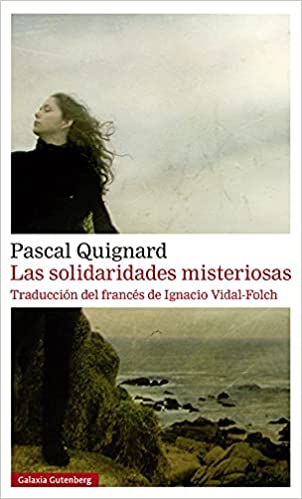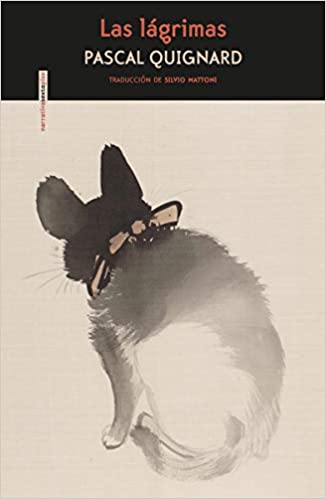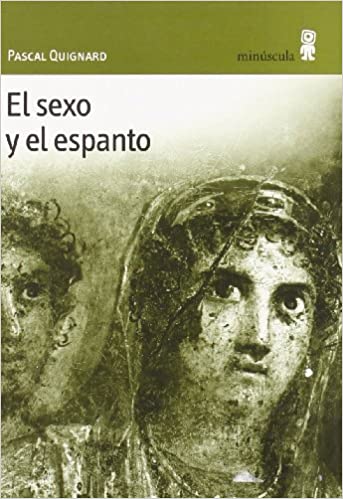Target surprising French author while there Michel Houellebecq It is never an easy matter. But do not detract from a Pascal Quignard That from the outset starts from equal to equal with the aforementioned, both being Goncourt prize. In the end, literature must be literature, not just posture or eccentricity. And in Quignard's almost hermitic determination to indulge in letters there is much of that irreducible will for the office of writing above all else.
If there are authors that we call existentialists, such as Milan Kundera o Proust, each with its most literary or philosophical point, Quignard's work surpasses that bar of a posteriori questions about life and delves into the antechamber of life itself. The fact that an individual asks: Why me? As that reason, coincidence, coincidence or causality that places us in the world, it serves as the starting point for Quignard's recurring background.
The point is to provide literature to the idea, to cover everything with plot and characters. That's what the job and the decision to be a writer are about. With the idea resonating in the background, you have to focus on creation, convince yourself that you are a new God with the task of generating sparks of life...
Top 3 Recommended Novels by Pascal Quignard
The mysterious solidarity
As the author progresses in his work, the cause, the motive, the motor ... whatever determines the action of writing manifests itself in a more open way, without restrictions or debts or guilt. Youth is irreverent in life, but in literature it is old age that gets rid of all taboos to indulge in the passionate freedom of the most stark writing.
Claire, a forty-seven-year-old woman at the peak of her professional career, abandons her job, her apartment in Paris and everything else that has made up her life to return to the town of Brittany where she grew up. There he meets again by chance the piano teacher of his childhood, who proposes that he go live with her.
Little by little he reinstates himself in the place, finds his first love again and establishes a deep relationship with his younger brother. Unexpectedly, her daughter, whom she had not seen in twenty years, returns to be with her.
In a polyphonic way, all the characters that are related to Claire evoke this woman whose story and destiny becomes increasingly surprising, as the family secrets, jealousy and hidden violence that nest in the protagonists of this deeply disturbing novel with a sober and enveloping beauty that endlessly traces the enigma that constitutes being in the world.
The tears
What was in store for a Europe at the center of the world but still peering into dark and mysterious confines? The vision from a kind of telluric relationship between man looking at modernity and the old continent, already entering the anxiety of struggles that would be great wars. Characters that compose traces of history from a magical intra-history of overlapping focuses.
A novel that takes the form of a legend or a poem, in which the opposite fates of two twins are narrated: Nithard, Charlemagne's grandson, scholar, man of letters, scribe, and Hartnid, traveler, sailor, warrior, wanderer. Two destinies, two ways of being in the world, two separate fragments that, as the book progresses, form the same fabric, a unity, a secret harmony under which the creation of the modern world hides, since birth counts. of Europe as a fertile crossroads of cultures.
A place like Europe, where the understanding between different peoples, the mutual understanding of their particularities and their languages was more important than borders or incipient nationalisms. A book that elegantly interweaves myths, songs, poems, stories, meditations and dreams.
Sex and horror
The transfer that Pascal achieves from the most marked individualism in his most intimate drives to the generality, the social, is extremely curious. But at the end of the day, morality is a translation that moves like an electric current, assaulting consciences at the syncopated rhythm of necessary coexistence.
When the edges of civilizations touch and overlap, shaking occurs. One of these earthquakes took place in the West when the edge of Greek civilization touched the edge of Roman civilization and the system of its rites: when erotic anguish became fascinatio and erotic laughter became sarcasm of the ludibrium.
In this disturbing book Pascal Quignard tries to understand how, during the time of Augustus, this mutation took place that still surrounds and affects us. To do this, he immerses himself with the help of the classics in the contemplation of the enigmatic figures of the Pompeian frescoes, which the eruption of Vesuvius has preserved intact to this day. The result is an extraordinary inquiry about what it means to carry in us the bewilderment of having been conceived.



